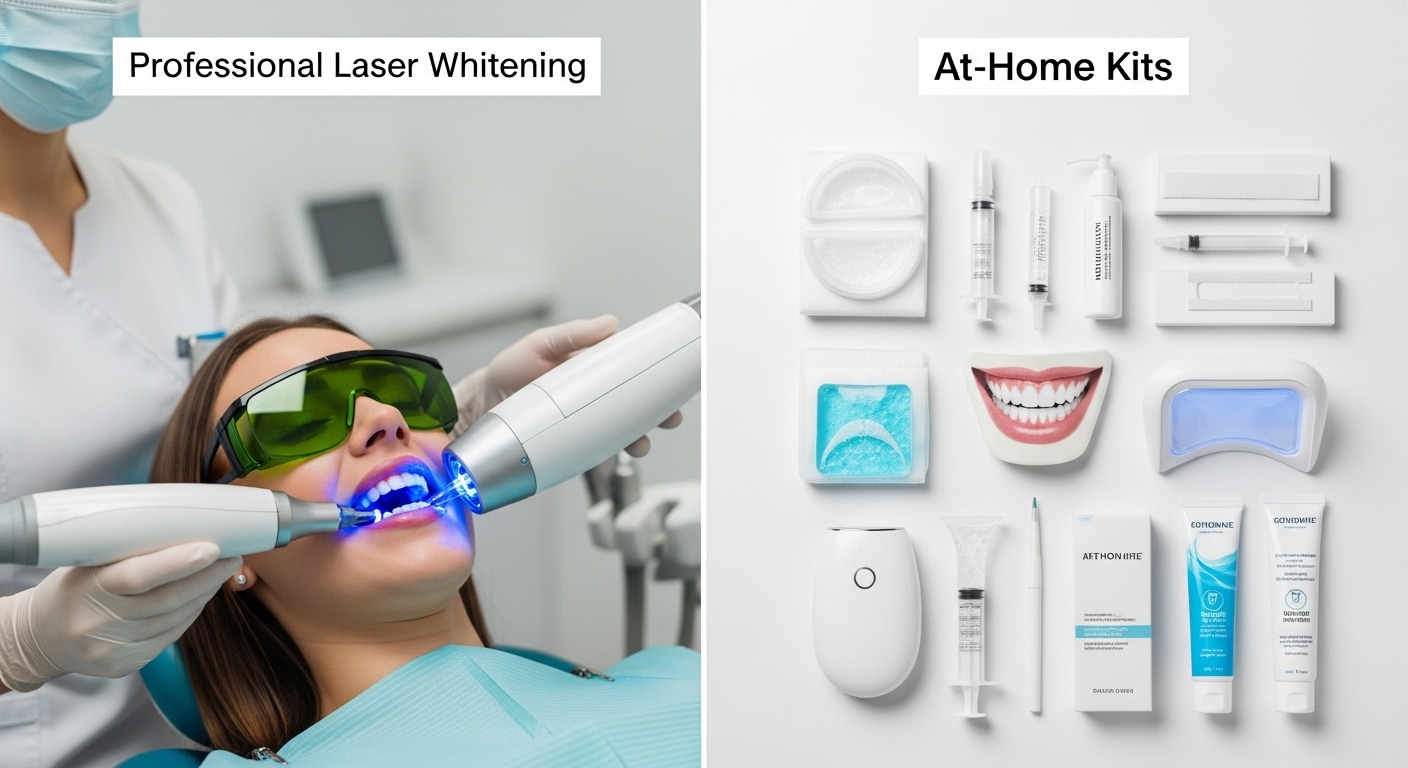Every community has its patterns, and ours is no exception. Between school sports, long commutes, weekend hikes, and the everyday pace of Valley life, certain dental issues tend to appear again and again. Working closely with a dentist in Woodland Hills means these problems are spotted early and managed in ways that fit your schedule and goals. From sensitive teeth to jaw tension, here is how local practices keep your smile comfortable, functional, and ready for whatever the day brings.
Tooth decay and the role of timing
Cavities often start quietly. Frequent snacking, sipping sweetened drinks, or nursing a sports beverage on the sidelines exposes enamel to a steady stream of acids. Over time, the outer layer softens and a cavity forms. The good news is that early demineralization can often be halted or reversed with tailored fluoride and smart timing of meals. When restorations are needed, conservative approaches preserve as much natural tooth as possible.
Gum inflammation and periodontal disease
Gingivitis begins with bleeding during brushing or flossing and can progress if plaque remains. Left unchecked, inflammation may affect the bone that anchors teeth, leading to periodontal disease. Local dentists take careful measurements, remove the biofilm that daily brushing misses, and teach techniques that keep gums calm. With consistent care, many patients see bleeding reduce and comfort return quickly.
Sensitivity: enamel, roots, and habits
Sharp twinges with cold water or air can stem from recession, enamel thinning, or microscopic cracks. Sometimes the culprit is aggressive brushing or acidic drinks. Your dentist will look for patterns, recommend gentler technique and remineralization, and address any bite forces that are compounding the issue. Relief often comes from a combination of small changes rather than a single solution.
Cracks, chips, and weekend mishaps
Active families see their share of chipped edges and cracked cusps. Grinding at night, clenching during stressful drives, or a misstep on the trail can overload enamel. Early identification is key. Small fractures can be stabilized with conservative bonding or onlays before they spread, saving time and structure. Athletic mouthguards and night guards help prevent repeat injuries.
Jaw tension, headaches, and bite balance
If mornings bring sore muscles or afternoon headaches cluster near the temples, your bite may be overworking certain areas. Dentists evaluate how teeth meet, how joints move, and how muscles respond. Conservative adjustments or protective appliances often reduce strain. As the system balances, headaches ease, sensitivity fades, and chewing feels more natural.
Infections that need prompt attention
When decay reaches the nerve or a crack opens a pathway, bacteria can trigger inflammation and infection. Timely treatment relieves pain and preserves the tooth whenever possible. Your dentist will diagnose the source, calm the infection, and map a path back to health. Follow-up care focuses on prevention so the same scenario does not recur.
Alignment concerns and wear
Crowding, rotated teeth, or bite discrepancies can make cleaning harder and put uneven stress on enamel. Modern orthodontic options straighten and balance the bite, simplifying hygiene and protecting teeth from chipping over time. For adults and teens, alignment is both a functional and aesthetic investment with daily benefits.
Children’s dentistry and strong starts
Early visits build comfort and establish habits that last. Dentists coach brushing and flossing, suggest protective sealants when indicated, and keep a close eye on growth and spacing. Positive experiences teach kids that the dental office is a safe, supportive place, making future care easier and more effective.
Dry mouth and changes with age
Medication side effects, reduced hydration, and natural changes can decrease saliva flow, leaving the mouth more vulnerable to decay and discomfort. Your dentist will suggest strategies to stimulate or substitute moisture, choose products that nourish oral tissues, and time care to keep enamel resilient. Addressing dry mouth pays dividends in comfort and long-term stability.
Oral lesions and cancer screenings
Not every sore is serious, but any spot that lingers deserves a look. Routine screenings help identify areas that need monitoring or referral. Early detection matters, and a local practice that knows your baseline can spot changes quickly. Patients appreciate the peace of mind that comes from watchful, informed eyes.
All of these issues benefit from continuity. When your history is known, patterns are recognized and solutions become simpler. That is the advantage of partnering with a dentist in Woodland Hills who blends prevention with timely treatment, helping you avoid emergencies and get back to your life with minimal disruption.
Bad breath and the microbiome
Persistent bad breath is usually a sign that bacteria are thriving where brushes cannot reach. Professional cleanings, tongue care, and tailored rinses shift the balance toward a healthier microbiome. Hydration, diet, and sinus health often play a role, and addressing them together makes improvements more durable.
Wisdom teeth and crowded corners
Third molars can complicate hygiene or press on neighbors as they erupt. Monitoring through late adolescence helps determine whether removal is advisable or if watchful waiting makes more sense. The goal is comfortable function with the fewest interventions necessary.
Pregnancy and gum changes
Hormonal shifts can heighten gum sensitivity and inflammation. Extra attention to cleanings and gentle home care keeps tissues calm and comfortable. Expectant parents often appreciate clear, simple guidance they can implement immediately, trusting that small daily steps will protect both comfort and health.
Frequently asked questions
How do I know if a toothache is serious? Persistent or throbbing pain, swelling, sensitivity to hot, or pain when biting can signal infection or a cracked tooth. Prompt evaluation is the safest course. Even if the discomfort subsides, an underlying issue may remain and is easier to treat early.
Can bleeding gums heal? Yes. With professional cleanings to remove bacteria and consistent home care, most people see bleeding reduce within days to weeks. If bleeding persists, your dentist will assess for deeper gum concerns and tailor treatment accordingly.
What causes sensitivity all of a sudden? A change in brushing technique, a new whitening routine, dietary shifts toward acidic drinks, or a small crack can trigger sudden sensitivity. Your dentist will investigate and create a plan that addresses the specific cause.
Do all cracked teeth need crowns? Not always. The right solution depends on the crack’s depth and location. Some can be stabilized conservatively; others need fuller coverage to prevent splitting. Early evaluation keeps options more conservative.
How often should I have cleanings? Twice a year works for many, but people with a history of inflammation, orthodontics, or dry mouth may benefit from more frequent hygiene visits. Your dentist will recommend an interval based on your individual response.
Get the help you need
If something feels off—twinges, tenderness, or changes you cannot explain—do not wait for it to worsen. Connect with a trusted dentist in Woodland Hills and get a plan that restores comfort and keeps you moving forward with confidence.





